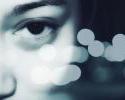The following articles are the latest scientific publications in OCD research. For current mental health findings, also visit our Mental Health News page. If you are interested in participating in an OCD research study, visit our page for OCD Research Participants and Volunteers.
| Title |
Author(s) |
Year |
Comments |
|---|
|
Behavioral treatment of obsessive-compulsive disorder in African Americans: Clinical issues.
|
Williams KE, Chambless DL, and Steketee G.
|
1998
|
Authors describe the dearth of literature on African Americans and OCD and lack of studies to determine how African Americans respond to behavioral treatments that are efficacious for White subjects. The authors posit that clinical issues unique to African Americans complicate the treatment process -- such as excessive shame, insanity fears, and a sense of uniqueness.
|
|
Ethnic Identification Biases Responses to the Padua Inventory for Obsessive-Compulsive Disorder
|
Williams MT, Turkheimer E, Schmidt K, Oltmanns T
|
2005
|
On this checklist, Blacks outscored Whites on every item of this 10-item subscale, and, in fact, four contamination/washing items were endorsed more strongly by Blacks than persons with OCD. For this subscale, scores obtained from Blacks and Hispanics were indistinguishable from OCD patients, whereas Whites scored significantly lower.
|
|
Incidence of obsessive-compulsive disorder in a community sample of young adolescents
|
Valleni-Basile LA, Garrison CZ, Waller JL, Addy CL, McKeown RE, Jackson KL, Cuffe SP
|
1996
|
Article gives information about the prevalence of OCD for different groups.
|
|
Psychometric analysis of racial differences on the Maudsley Obsessional Compulsive Inventory.
|
Thomas J, Turkheimer E, & Oltmanns TF
|
2000
|
The 30-item Maudsley Obsessional Compulsive Inventory, was found to lack predictive validity for African-Americans when administered to a large sample of college students, in part because of overendorsement of cleaning and checking items.
|
|
The Yale-Brown Obsessive Compulsive Scale: I. Development Use and Reliability
|
WK Goodman et al
|
1989
|
This paper describes the development and reliability of the Yale-Brown measure (YBOCS) for the assessment of obsessive-compulsive disorder severity.
|
|
The Yale-Brown Obsessive Compulsive Scale: II. Validity
|
WK Goodman et al
|
1989
|
This paper describes the process of validating the Yale-Brown measure (YBOCS) for the assessment of obsessive-compulsive disorder severity.
|
|
Clinical features associated to refractory obsessive-compulsive disorder
|
Ygor A. Ferrao, Roseli G. Shavitt, Nadia R. Bedin,
Maria Eugenia de Mathis, Antonio Carlos Lopes, Leonardo F. Fontenelle,
Albina R. Torres, Euripedes C. Miguel
|
2006
|
This article investigates factors associated with treatment-refractoriness of patients with OCD. The authors conducted a case-control study,
comparing 23 patients with treatment-refractory OCD to 26 patients with treatment-responding OCD.
|
|
Sexual addiction: Many conceptions, minimal data
|
Steven N Gold and Christopher L. Heffner
|
1998
|
Sexual addiction has received increasing attention in the past decade. Existing literature on (1) competing conceptualizations of this syndrome as
constituting an addictive, obsessive-compulsive, or impulse control disorder; (2) symptomatology and progression; (3) etiological models; and (4)
treatment approaches is reviewed. Based on this review, questions requiring resolution via empirical investigation are identified.
|
|
Current Pharmacological Treatments for Obsessive-Compulsive Disorder
|
A. Bystritsky
|
2004
|
An excellent overview of drug treatments for OCD, with mechanisms, dosage ranges, and side-effects. Includes helpful treatment algorithm (Essent Psychopharmacol 5:4, 2004.)
|
|
Sexual obsessions in obsessive-compulsive disorder
|
Jennifer B Freeman and Henrietta L. Leonard
|
2000
|
Reports on a 7-yr-old female and 10-yr-old male with onset of obsessive-compulsive disorder (OCD) after sexual abuse/sex play. Both cases
presented diagnostic questions related to overlap and comorbidity between OCD and posttraumatic stress disorder (PTSD). It is noted that in these
cases, the diagnosis of OCD was evident, whereas the full criteria for PTSD were not met. The authors note that it appeared that the sexual abuse
incident was incorporated into OCD symptomatology. Although high comorbidity among anxiety disorder is well established, the interrelationship of
the 2 disorders is notable. The authors argue that in children presenting with sexual obsessions and OCD, it is important to consider sexual abuse.
|
|
Compulsive Exhibitionism Successfully Treated With Fluvoxamine: A Controlled Case Study
|
Joseph Zohar, M.D., Zeev Kaplan, M.D., and Jonathan Benjamin, M.D.
|
1994
|
This article details the sucessful treatment of an exhibitionist by taking an OCD drug called Luvox (Fluvoxamine).
Medical jargon for the uninitiated: ego-dystonic means behaviors that make you upset, Y-BOCS is a little written test that shows how obsessive-compulsive you are.
|
|
The Paraphilias, Obsessive Compulsive Spectrum Disorders, and the Treatment of Sexually Deviant Behaviors
|
J. M. W. Bradford
|
1999
|
Paraphilias are psychological/social disorders that are usually considered deviant in nature. But in some cases, paraphilia can be thought of as an obsessive compulsive disorder. Medical jargon: 5HT means seratonin, SSRI's are drugs like Prozac.
|
|
Compulsive Voyeurism and Exhibitionism: A Clinical Response to Paroxetine
|
A. Abouesh and A. Clayton
|
1999
|
Some researchers believe that paraphilias are related to obsessive compulsive disorder. This article gives examples of people treated for voyeurism and exhibitionism with the same medications used for OCD. Medical jargon: Paroxetine is Paxil.
|
|
Sexual obsessions and clinical correlates in adults with
obsessive-compulsive disorder
|
J. E. Grant, A. Pinto, M. Gunnip, M. C. Mancebo,
J. L. Eisen, S. A. Rasmussen
|
2006
|
Sexual obsessions are fairly common among individuals with OCD. Women
were as likely as men to report sexual obsessions. Subjects with current sexual obsessions
were significantly more likely to report current aggressive and religious obsessions. Subjects with sexual obsessions also reported an earlier age of onset of OCD than subjects without these symptoms. Severity of OCD, comorbidity, treatment response, insight, depressive symptoms, quality of life, and social functioning did not differ between those with and without sexual obsessions. (Comprehensive Psychiatry 47 (2006) 325-329.)
|





